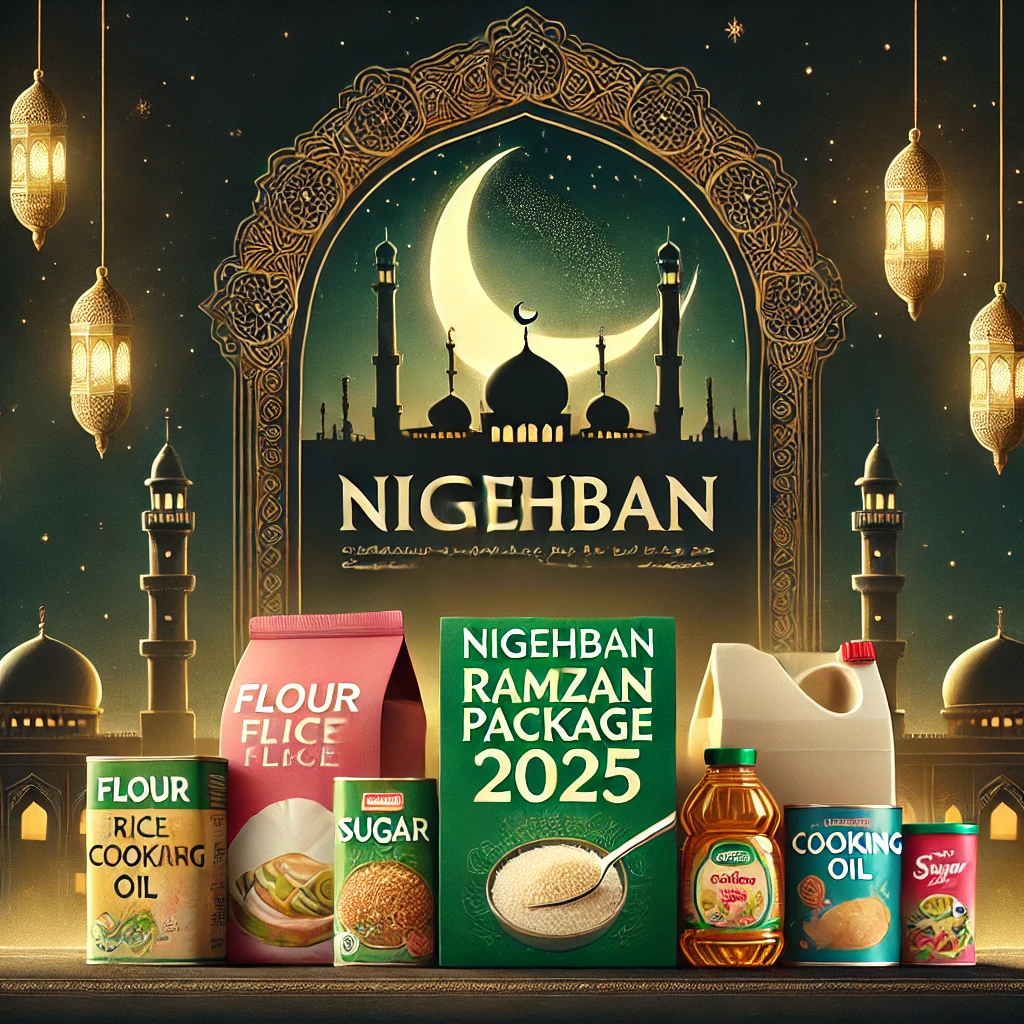The Ramadan Nigehban Package 2025 provides essential food items and financial aid to low-income families, ensuring food security and fostering community solidarity during the holy month of Ramadan,
The holy month of Ramadan is a time of spiritual reflection, self-discipline, and community bonding for Muslims around the world. It is a period marked by fasting, prayer, and acts of charity. In Pakistan, the government has taken significant steps to ensure that the spirit of Ramadan is upheld by supporting underprivileged families during this sacred month. One such initiative is the Ramadan Nigehban Package, a program designed to provide essential food items and financial assistance to those in need. As we look ahead to 2025, the Ramadan Nigehban Package is expected to expand its reach and impact, further solidifying its role as a cornerstone of social welfare in the country.
What is the Ramadan Nigehban Package?
The Ramadan Nigehban Package is a government-led initiative aimed at alleviating the financial burden on low-income families during Ramadan. The program typically includes the distribution of food items such as flour, rice, sugar, cooking oil, pulses, and dates, which are essential for preparing meals during the month of fasting. Additionally, some versions of the package may include financial assistance to help families cover other expenses during Ramadan. The program is particularly targeted at vulnerable populations, including daily wage workers, widows, orphans, and the elderly.
Objectives of the Ramadan Nigehban Package
The primary objective of the Ramadan Nigehban Package is to ensure that no family goes hungry during Ramadan. By providing essential food items, the program aims to:
- Promote Food Security: Ensure that families have access to nutritious meals for Suhoor and Iftar, the pre-dawn and post-sunset meals during Ramadan.
- Reduce Financial Stress: Alleviate the financial strain on low-income households, allowing them to focus on spiritual activities rather than worrying about basic needs.
- Foster Social Solidarity: Strengthen the sense of community by ensuring that everyone, regardless of their economic status, can partake in the blessings of Ramadan.
- Encourage Charitable Giving: Inspire individuals and organizations to contribute to the welfare of others, in line with the Islamic principles of Zakat and Sadaqah.
Ramadan Nigehban Package 2025: What to Expect
As the program evolves, the Ramadan Nigehban Package 2025 is expected to introduce several enhancements to better serve the needs of the population. Some anticipated features include:
- Expanded Coverage: The 2025 package is likely to reach more families, particularly in rural and remote areas where poverty levels are higher. This expansion will be facilitated through improved logistics and partnerships with local organizations.
- Digital Inclusion: To streamline the distribution process, the government may introduce digital platforms for registration and verification. This will ensure transparency and reduce the risk of corruption or mismanagement.
- Diverse Food Items: In addition to staple items, the 2025 package may include a wider variety of food products, such as fresh fruits, vegetables, and dairy items, to promote a balanced diet.
- Health and Hygiene Additions: Given the lessons learned from the COVID-19 pandemic, the package might include hygiene products like soap, hand sanitizers, and masks to promote health and safety during Ramadan.
- Skill Development Programs: To address long-term poverty, the 2025 initiative could incorporate vocational training or microfinance opportunities, empowering beneficiaries to become self-reliant beyond Ramadan.
Challenges and the Way Forward
While the Ramadan Nigehban Package has been widely praised, it is not without challenges. Issues such as logistical delays, inadequate funding, and unequal distribution have occasionally hampered its effectiveness. To address these concerns, the government must focus on:
- Strengthening Partnerships: Collaborating with NGOs, private sector entities, and international organizations to pool resources and expertise.
- Enhancing Monitoring Mechanisms: Implementing robust systems to track the distribution process and ensure accountability.
- Community Engagement: Involving local communities in the planning and execution of the program to ensure it meets their specific needs.
Conclusion
The Ramadan Nigehban Package 2025 represents a beacon of hope for millions of Pakistanis, embodying the true spirit of Ramadan through compassion and generosity. By addressing the immediate needs of vulnerable populations and fostering long-term solutions, this initiative has the potential to transform lives and strengthen the social fabric of the nation. As we look forward to its implementation, it is crucial for all stakeholders to work together to ensure its success, making Ramadan a time of joy and prosperity for all.

